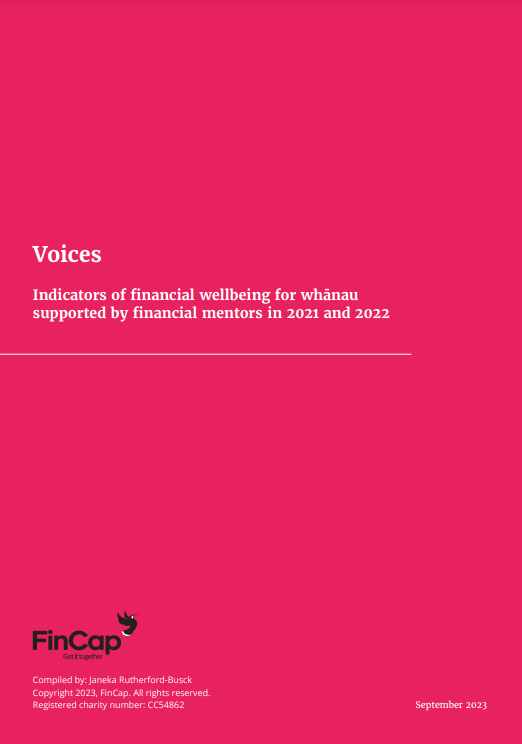Financial mentors work with whānau to look at what money is coming in and what money is going out. The Voices report uses data collected by financial mentors to explore three key indicators of financial wellbeing: Income, expenditure, and debt. It also provides an overview of the financial mentoring sector and FinCap’s policy positions to address key system-wide factors that will support whānau in achieving financial wellbeing.
Across the Client Voices data, it is seen that incomes increased in 2022, with the median income being $682.47. Across most demographic breakdowns in this report, incomes were lower than a full-time minimum wage equivalent in 2022. Where we could see whether someone seeing a financial mentor had children, 70 percent did have children. Whānau with children were receiving higher incomes than those without children, reflecting a step in the right direction with targeted support beginning to reach whānau with children. However, some clients recorded in Client Voices were receiving particularly low weekly incomes, in the $0 to $249 income bracket.
Whānau recorded in Client Voices were spending more than they were earning in 2022. The median expenditure as a percentage of weekly income decreased slightly across Client Voices in 2022, to 104.3 percent of income. The median percentage of income that clients were spending on debt was higher than expenditure on electricity, fuel, or clothing.
Across Client Voices, whānau had a median debt of $13,666.35 and a median of four debts each. Whānau with children had more debt than whānau without children, and there were more than twice as many women with debt working with a financial mentor than men. The most common creditors were consumer lenders and government departments or agencies, and debts to these lenders were also the largest.

